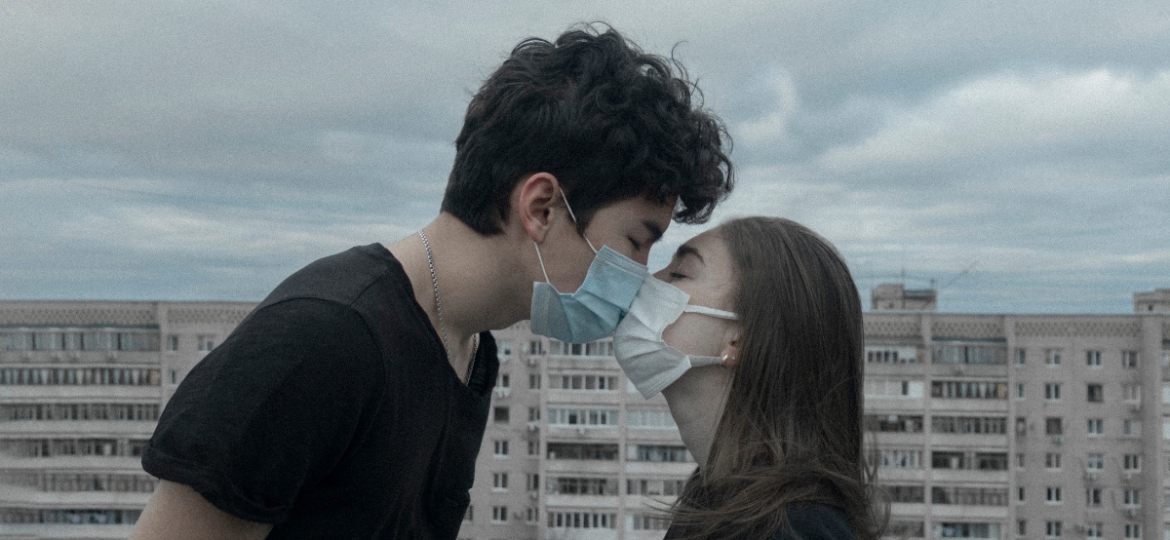
Is There a Cupid in COVID?
By Kaylie Pykkonen, contributing writer
Whether you’re single, dating, married or in an “it’s complicated” relationship, social isolation presents unprecedented challenges to sex and love. Reluctant to face the void alone, some people coupled up in quarantine, while existing pairs lost a majority of their independent activities. Meanwhile, those who’ve remained single may be using alternative methods to satisfy their sex drive.
“We need community; that’s how we’ve evolved and survived,” said Dr. Jenni Skyler, a certified relationship and sex therapist. “Not just in terms of Maslow’s hierarchy of needs, [referring to the pyramid structure of human needs developed by the mid-Century psychologist Abraham Maslow] but we need community on an existential and emotional level for overall well-being.”

Skyler has worked in the field for over 12 years and co-owns The Intimacy Institute with her husband in Boulder, Colorado. Since the city went on lockdown last March, she’s witnessed a significant shift in her clients’ stress levels and an overall increase in mental health issues. This mirrors a national trend as the number of adults reporting symptoms of depression and anxiety rose 30% over the last year.
Stress can reveal previously unseen holes in romantic relationships and without a distraction, trivial disagreements could turn destructive. On the other hand, some young couples are finding that their chemistry didn’t dissolve after the honeymoon phase. In fact, it grew stronger.
“For me, it’s made it easier because I got to see [my boyfriend] so much more,” said Amelia Lochhead, a Colorado native whose boyfriend attends Denver University. “You can’t be going on trips or out with other people, but you get to see more of them and who they are within the normal day-to-day.”
Lochhead started dating her current boyfriend four years ago when they were both seniors in high school. After she decided to attend Cornell University, the couple had to manage commitment from a distance and find different strategies for maintaining that spark. With social distancing restrictions, people had to choose an inner circle and Lochhead said that the constant time together during school breaks made up for a night on the town.
The love options look different for those who were single before the pandemic. According to Skyler, more people are using dating apps or seeking alternative forms of pleasure. Last spring, the sex toy franchise Adam and Eve reported a 30% increase in online sales compared to the same period in 2019. As a sales representative for the company, Skyler said more singles and couples alike are buying products to spice up their sex life, though it is difficult to replace real companionship. So some are choosing to ignore social restrictions and continue meeting strangers.
“I think a lot of single people are just throwing caution to the wind at this point,” said Skyler. “It can be hard to be single, especially right now.”
A study conducted by the Pew Research Center revealed that nearly half of American adults consider dating harder today than it was ten years ago. Even before the pandemic, most cited increased physical and emotional risks as the primary inhibitor. COVID-19 has exacerbated health anxiety, though there may be a generational divide. On average, adults aged 18-29 were significantly less likely to postpone social plans than their elder peers in the summer of 2020.
Conflicting pandemic precautions exist among young Americans, yet some are finding romantic success while still adhering to COVID-19 guidelines. This may be why more people are using digital dating platforms than before.
Jade Shatkin, a senior at the University of Colorado Boulder, entered a new relationship in June 2020 through a means she hadn’t tried before: social media. The opportunity allowed her to meet and speak to people that she normally wouldn’t have crossed paths with, and after months of conversing with a potential dating prospect, the two decided to meet. They then started dating and chose to combine social circles, spending most of their time together.
The decision to latch onto someone during isolation is a recurring theme observed by Skyler. Even if it is not a perfect pair, she said a lot of couples are making it work. In new relationships as in old, each individual’s ability to care for themselves plays a crucial role in romantic success.
“We’ve gone through such a hard year and I feel like we’ve become adults,” said Shatkin. “So I feel more confident in entering the real world because it’s gonna throw you crazy things.”
Shatkin went on to say that post-pandemic life will likely present a new set of challenges in her love life, although she considers her current situation the best romantic relationship she’s ever been a part of. Like Lochhead, Shatkin found the most benefit in uninterrupted time together.
Perhaps this reflects a desire to break scattered social patterns and connect on a deeper level. Both Shatkin and Lochhead said they’ve improved their platonic connections as well, not just their love life.
“I think that my social circle will be tested after this since we won’t be spending as much time together,” said Shatkin. “But we’ve all grown so much, we’re ready.”

